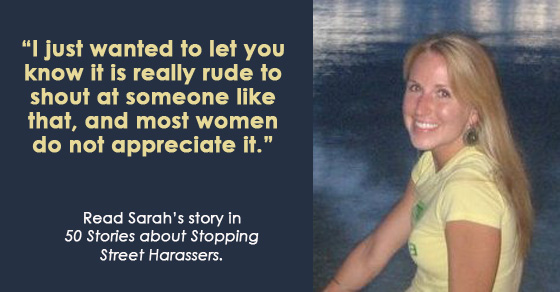By: Molly Redding, San Francisco, CA, USA, SSH Correspondent
 My last blog post was about Carolyn Criado-Perez, who was harassed on Twitter after fighting to get a woman on British bank notes. I’m sad to say that Carolyn has since decided to shut down her Twitter account due to the barrage of threats she received. I’m incredibly upset by this, an action that says to me that we are a culture that can’t tolerate other people and their different beliefs. I only hope that Carolyn continues her fight for women’s rights both on and off the Internet.
My last blog post was about Carolyn Criado-Perez, who was harassed on Twitter after fighting to get a woman on British bank notes. I’m sad to say that Carolyn has since decided to shut down her Twitter account due to the barrage of threats she received. I’m incredibly upset by this, an action that says to me that we are a culture that can’t tolerate other people and their different beliefs. I only hope that Carolyn continues her fight for women’s rights both on and off the Internet.
Her story, and two other recent incidents, demonstrates how sexism in the tech sector is strong and how it can influence daily behavior, specifically, street harassment.
First, earlier this month, at the start of one of the biggest tech conferences of the year called TechCrunch Disrupt, two men from Australia kicked off the conference by introducing their new app called, ingeniously, TitStare. It was meant to be a parody, but all it did was highlight the idea that women’s bodies in public are men’s property.
The fact that (1) these guys thought up this app, (2) they not only thought it would be hilarious, they thought MANY other people would think it was hilarious and (3) whomever was approving the sessions ALSO thought it would be hilarious, demonstrates just how numb to the idea that women’s bodies on display are public property our culture has become.
Not only that, but it propagates the idea that being ogled is something to be taken lightly and laughed at, as well as accepts men’s behavior as “boys being boys.” All of these ideas, even in subtle humor, continue to perpetuate the acceptance of street harassment in our culture.
To add insult to injury, a 9-year-old girl was in the audience excited to give her own presentation on an app she had created. What kind of messaging about her body, at an incredibly vulnerable age, do you think she received?
(To be fair, TechCrunch has since issued an apology.)
Second, there’s this video: “Sweeping Women Off Their Feet.” In this video, which has been viewed more than one million times, two men walk around their campus grabbing women they don’t know and carrying them off without permission– under the guise of being “gentlemanly.”
This behavior reinforces strict constructs of masculinity and femininity, and what does it say about our culture that these men feel that it is their right to get into a woman’s space and pick her up without her permission? If this isn’t an example of women’s bodies being assumed as public property, I’m not sure I know what is.
Since this was done in a building on a college campus, the women, I assume, felt relatively safe. What if this had been done on a random street corner? At night? What messages are people who watch these videos consuming?
But technology and the Internet aren’t all bad. Websites like stopstreetharassment.org are using the power of Internet messaging to try and spread the opposite message, to try and make people stop, think, and discuss what appropriate interactions in public spaces are.
This week, I was excited to see Jezebel post about a woman who used the “missed connections” section of Craiglist to fight back against her harasser. She employed the power of language to make herself more “human” to her harasser, an important idea when many of our interactions online and offline are anonymous, allowing harassers to separate their own humanity from the person they are harassing. The harassers never see their victim’s emotions, and so can ignore the fact that they have the same human feelings we all do.
Finally, if you’re like me, you might think that Tumblr posts are an amazing tool for disrupting the social world. Lucky for you, there are many Tumblr sites devoted to combatting street harassment:
http://stopstreetharassment.tumblr.com/
http://fuckyoustreetharassment.tumblr.com/
http://streetharassmenttumblr.tumblr.com/
http://www.tumblr.com/tagged/street-harassment
I love that these sites use a combination of pictures, words and videos to contest “normal” social order, help victims realize they are not alone, and provide many, many options for making women’s place in the public world just a little bit easier, and a little bit safer.
Just like the street, the internet is a public space where women can easily be harassed and shamed, but they can also claim the space for their own. So let’s keep claiming – keep writing, keep tweeting, keep posting!
Molly received a graduate degree in International Development and Gender from the London School of Economics in 2011, where her dissertation focused on websites allowing victims of harassment to post about their experiences. She has worked in the non-profit sector for over 10 years. You can follow her on Twitter, @perfeminist.


